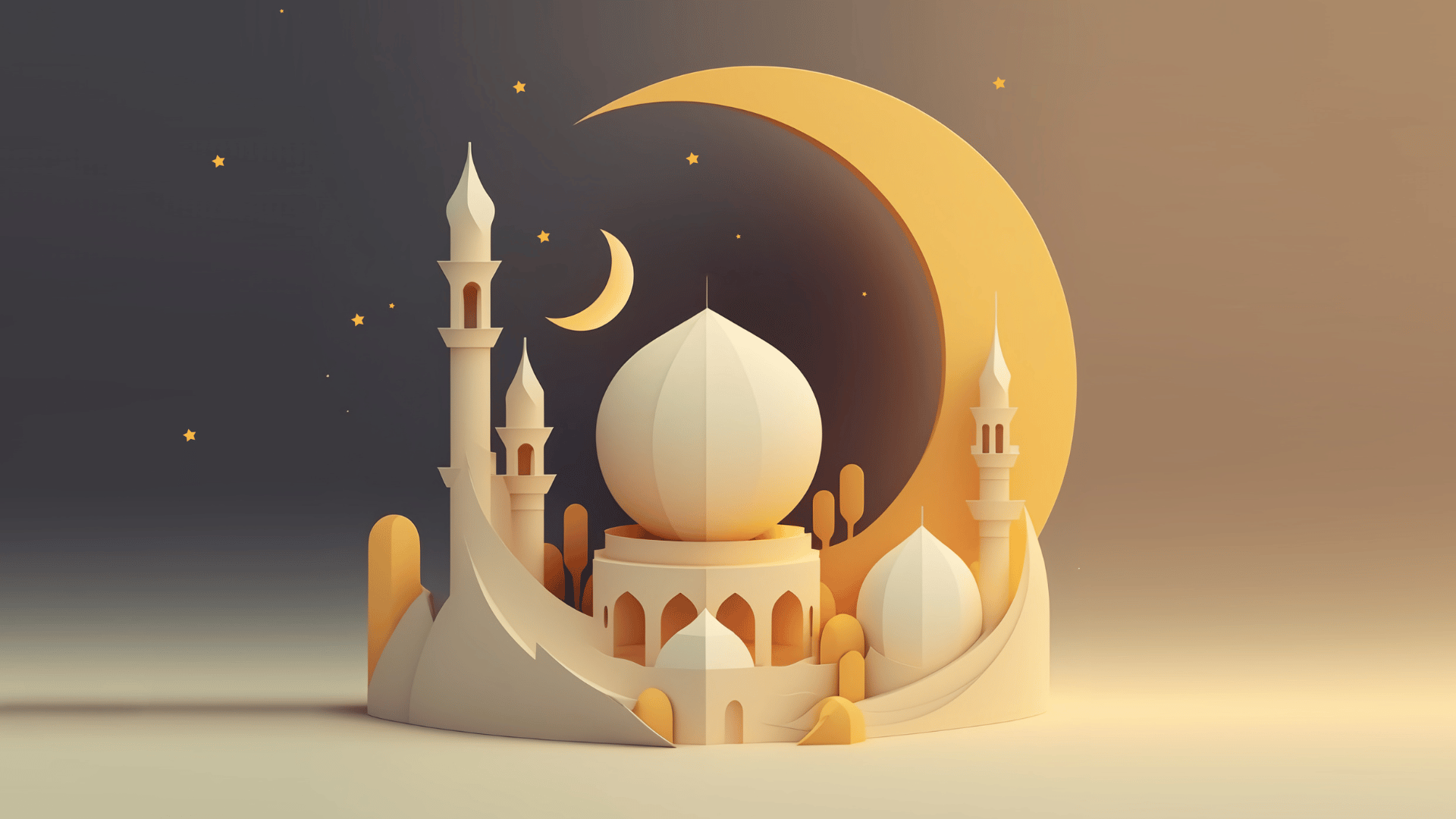
Holidays & Celebrations
Holidays & Celebrations
Islamic holidays and celebrations hold a special place in the hearts and lives of Muslims worldwide. Beyond their cultural significance, these occasions are deeply rooted in the faith, marking moments of profound spiritual importance.
Ramadan: The Month of Fasting
Ramadan, the ninth month of the Islamic lunar calendar, stands as a cornerstone of Muslim faith and practice.
- Fasting as Spiritual Discipline: Ramadan is a month of fasting, during which Muslims abstain from food, drink, smoking, and other physical needs from dawn to sunset. This practice symbolizes self-discipline, self-control, and empathy for those who are less fortunate.
- Spiritual Reflection: Ramadan is a time for deep spiritual reflection, self-purification, and drawing closer to Allah. Muslims engage in increased worship, reading of the Quran, and acts of charity.
- Community Unity: The communal aspect of Ramadan is vital. Muslims come together with family, friends, and neighbors to break their fast (Iftar), fostering unity and solidarity.
Special Things in Ramadan
- Suhoor and Iftar: Each day of Ramadan begins with Suhoor, the pre-dawn meal, and ends with Iftar, the meal to break the fast at sunset.
- Taraweeh Prayer: Muslims attend nightly Taraweeh prayers at mosques, where the Quran is recited in its entirety over the course of the month.
- Charity (Zakat and Sadaqah): Ramadan is a time of increased charity. Muslims are encouraged to give both Zakat (obligatory charity) and Sadaqah (voluntary charity) to help those in need, ensuring that everyone can partake in the blessings of the month.
- Laylat al-Qadr: The “Night of Decree” or “Night of Power” falls within the last ten days of Ramadan. It is believed to be the night when the Quran was first revealed to the Prophet Muhammad. Muslims dedicate this night to intense prayer and seeking Allah’s blessings and forgiveness.
Eid al-Fitr: The Festival of Breaking the Fast
Eid al-Fitr, celebrated on the first day of Shawwal, immediately following Ramadan.
- Gratitude and Thankfulness: Eid al-Fitr is a day of gratitude to Allah for the strength, patience, and self-discipline displayed during Ramadan.
- Forgiveness and Purification: It is an opportunity to seek Allah’s forgiveness and purification from sins, reflecting on the spiritual renewal experienced during the fasting month.
Special Things on Eid Al-Fitr
- Eid Prayer: Muslims gather at mosques or open prayer grounds for the special communal “Eid Salah.” This prayer symbolizes unity and gratitude, bringing the community together.
- Zakat al-Fitr: Before the Eid prayer, Muslims are encouraged to give Zakat al-Fitr, a form of charity, ensuring that even the less fortunate can partake in the festivities.
- Dressing Well: On this day, Muslims adorn themselves in new or their finest clothes as an expression of joy and gratitude. These outfits often reflect cultural diversity and traditions.
- Eid Greetings: The exchange of greetings with “Eid Mubarak” (Blessed Eid) is a cherished tradition, conveying blessings, love, and best wishes to one another.
- Feasting and Sharing: Eid al-Fitr is synonymous with delicious feasts. Families prepare special dishes, including sweets like baklava, ma’amoul, and other traditional delicacies. Sharing these meals with family and friends is an essential part of the celebration.
- Visiting Loved Ones: Muslims visit the homes of relatives, friends, and neighbors, strengthening social bonds and sharing the joy of the occasion.
- Acts of Kindness and Charity: Eid al-Fitr encourages acts of kindness and charity. Muslims give gifts, donate to those in need, and extend their generosity to others, especially to those who may not have the means to celebrate.
Eid al-Adha: The Festival of Sacrifice
Eid al-Adha, celebrated on the 10th day of Dhul-Hijjah, carries profound significance. Prophet Ibrahim’s Devotion: It commemorates the willingness of Prophet Ibrahim (Abraham) to sacrifice his son Isma’il (Ishmael) in obedience to Allah’s command, symbolizing unwavering devotion and submission to Allah’s will.
Special Things in Eid al-Adha
- Eid Prayer: Muslims gather for the Eid Salah, a communal prayer that includes a sermon. This moment of worship reinforces the values of sacrifice and devotion.
- Animal Sacrifice (Qurbani): Many Muslims perform Qurbani, the ritual sacrifice of an animal, as a symbolic act of sacrifice. The meat is distributed among family, friends, and those in need, emphasizing sharing and compassion.
- Zakat: Muslims give Zakat (obligatory charity) to those in need, ensuring that all can partake in the festivities and blessings of Eid.
- Visiting Loved Ones: Like Eid al-Fitr, Eid al-Adha is a time for family and friends to come together, exchange greetings, and share in the joy of the occasion.
- Acts of Kindness and Charity: Eid al-Adha encourages acts of charity, kindness, and helping the less fortunate. Muslims are encouraged to remember those in need and extend their support.
